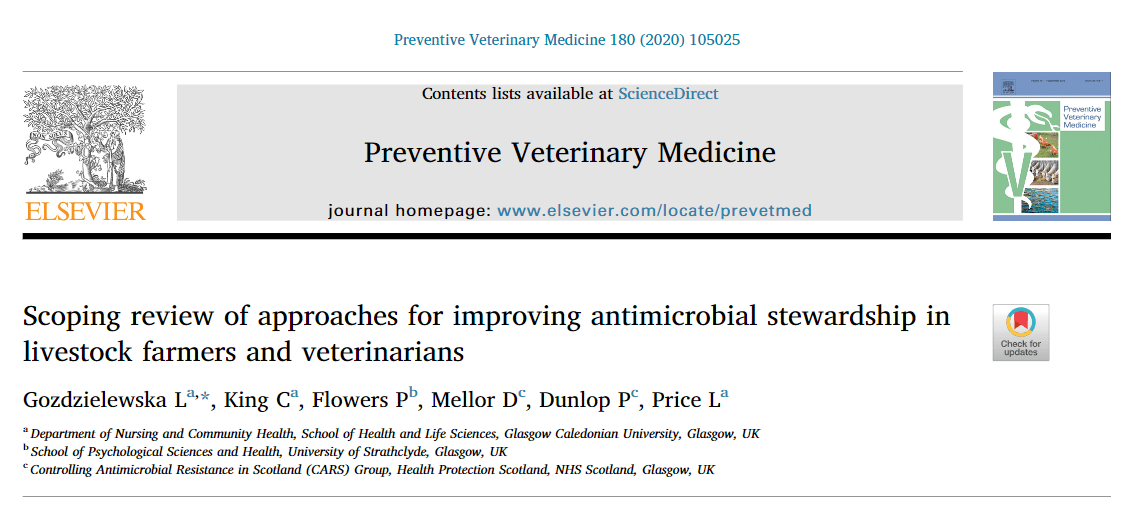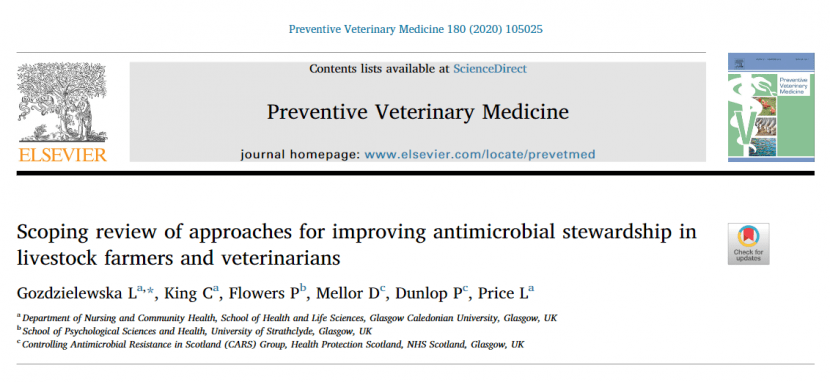By Lucyna Gozdzielewska
 In a recently published SHIP team paper—co-authored with colleagues from Health Protection Scotland and the University of Strathclyde—the findings of a scoping review of approaches for improving antimicrobial stewardship in livestock farmers and veterinarians are reported.
In a recently published SHIP team paper—co-authored with colleagues from Health Protection Scotland and the University of Strathclyde—the findings of a scoping review of approaches for improving antimicrobial stewardship in livestock farmers and veterinarians are reported.
This is an important topic, because microorganisms’ ability to defeat antimicrobials, known as antimicrobial resistance, is an increasing threat to us all and antimicrobials misuse in livestock farming is contributing to this problem and impacting on human health.
One of the ways to minimise the risk of the emergence of antimicrobial resistance in the farming sector is to improve farmers’ and vets’ antimicrobial stewardship, which refers to ensuring prudent antimicrobial use and prescribing and infection prevention through the management of animal health and the farming system.
Although, our review showed that more research is needed to develop effective interventions for improving antimicrobial stewardship in farming, there was some evidence on the effectiveness of an educational intervention in European cattle farmers and for the effectiveness of the Danish Yellow Card scheme that involved national surveillance of antibiotic use and setting up antimicrobial use targets for the pig farmers.
We also found that different strategies might be needed to improve prudent use of antibiotics in different livestock sectors. For example, provision of additional education about responsible prescribing and making diagnostic tests available were identified as facilitators to vets’ prudent antibiotic prescribing in cattle and pigs. For farmers, improving farm management practices and animal husbandry to prevent infections in the first place, are important regardless of the livestock sector. In addition, for pig farmers improving knowledge about antibiotic use and resistance could also be beneficial, while for cattle farmers strategies such as the use of alternative, non-antibiotic treatments or vaccinating herds are recommended.
We are delighted that the importance of this work has been recognised, as our paper was selected as the Editor’s Choice for the July issue of the Preventative Veterinary Medicine Journal. Furthermore, the role of the public has also been highlighted in an article about this work for The Conversation, which can be found here: https://theconversation.com/antibiotic-resistance-how-drug-misuse-in-livestock-farming-is-a-problem-for-human-health-141911
The full text of the review is available to all until the 19th September: https://www.sciencedirect.com/science/article/pii/S0167587719309018
To find out more about the SHIP team, head on to the GCU website, read the rest of our blogs and follow us on Twitter @SHIPGCU
